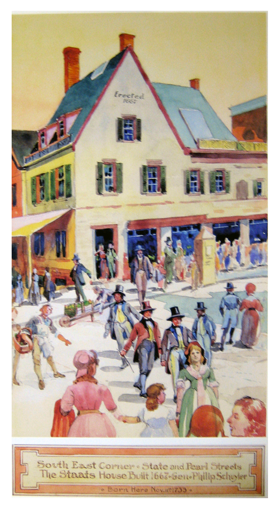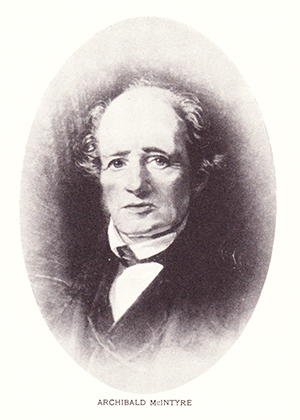The guns of Saratoga had been silent for 26 years. Those who had lived in Albany during the Revolution remembered the danger: Burgoyne’s army stood only 30 miles to the north while a second British force burned Kingston 60 miles to the south.
Now, in 1803, freedom and constitutional government had been proved by three elections. The Louisiana Purchase showed that the United States would become a continental power. Louis and Clark were meeting with President Thomas Jefferson to organize support for an expedition to find the most direct and practicable water communication across the continent for purposes of commerce. Security and optimism prevailed.
Forty-one Scotchmen (as they called themselves then), meeting at the Tontine Coffee House at the corner of State Street and North Pearl, founded the St. Andrew’s Society of the City of Albany. They were merchants, physicians, clergymen, and politicians – men of standing in a frontier settlement with a population of only 5500. They defined their vision of a society, founded for “social and benevolent purposes.” They enjoyed life, but they could not stand still when fellow Scots were in need.
Among the 41 founders Archibald McIntyre was born in Scotland and came to New York with his Gaelic-speaking family before the Revolution. Taught by his father he was a lawyer, surveyor, Assemblyman; in 1801 he became Deputy Secretary of State for New York. Inevitably he was chosen as first Secretary of the Society. He went on to become Comptroller for the State of New York; this undoubtedly helped St. Andrew’s when the Society incorporated in 1819.


